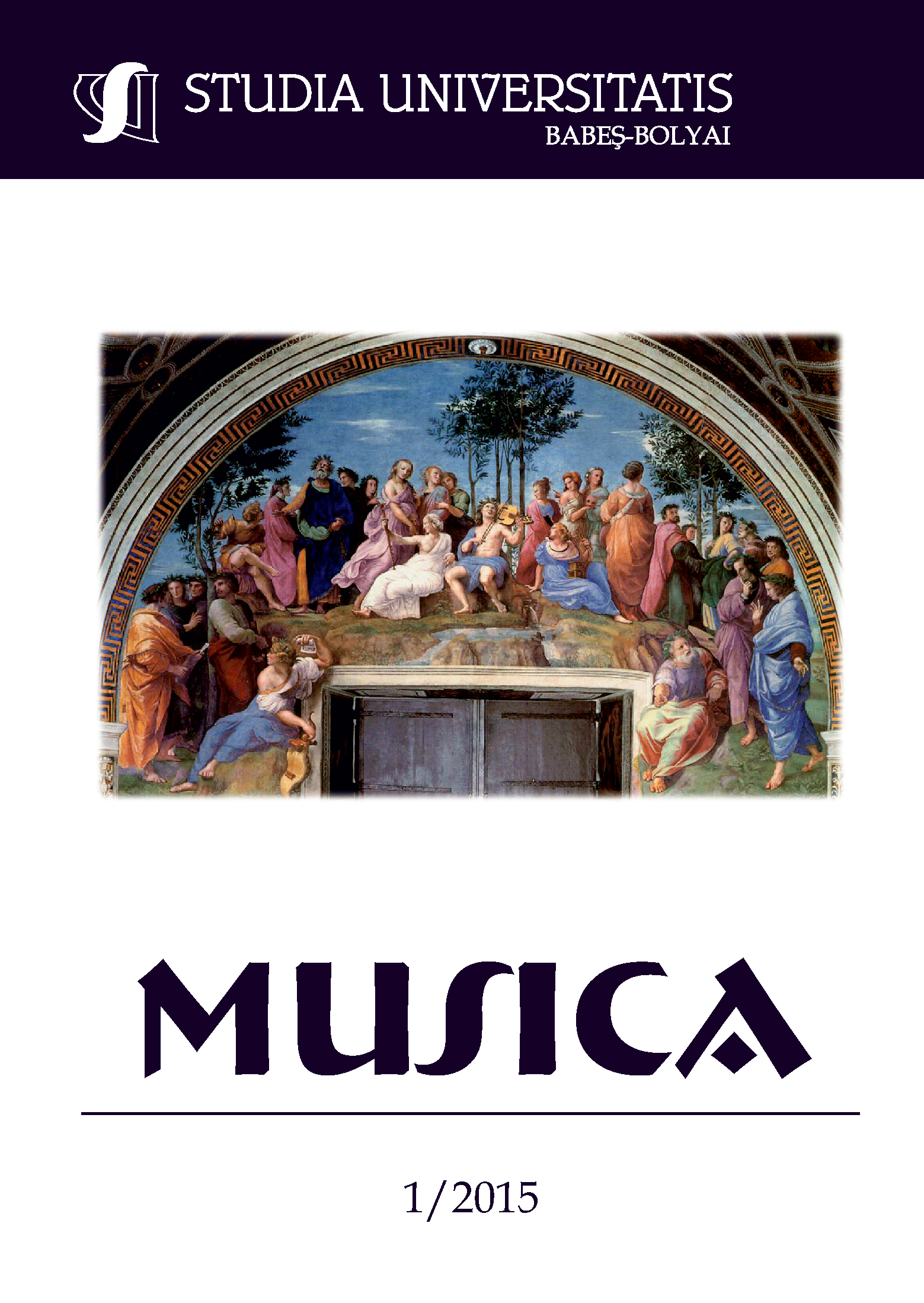APPROACHES TO THE MUSICAL TIME IN LIGETI’S WORK THROUGH HIS PIANO ÉTUDES
Keywords:
Ligeti, piano études, rhythm, polyrhythm, polymetre.Abstract
After developing his famous micro polyphony in the 60’, conceived as an alternative to the declined tonal music and even the serialism, Ligeti was going to explore in the last decades of the 20th century the field of rhythm, as a consequence of his compositional evolution. Meanwhile, he came into contact with a series of new musical and scientific phenomena, which captivated his creative mind, urging him to undertake further experiments regarding the possibilities of a multidimensional and non-symmetrical articulation of musical time. The most fertile field of these explorations was probably the piano genre, abandoned by Ligeti from the early 60’ for orchestral music. Alongside the Three Pieces for Two Pianos (1976) and the Piano Concerto (1985-88), his most significant series of piano pieces are the eighteen études composed between the years 1985-2011, published in three volumes. They represent in many respects a rhythm microcosm, challenging for interpreters, edifying for those interested in composition techniques, and fascinating for the audience.References
Arom, Simha (1991): African Polyphony and Polyrhythm: Music Structure and Methodology (trans. Martin Thom, Barbara Tuckett and Raymond Boyd), Cambridge University Press, 1991.
Duchesneau, Louise & Marx, Wolfgang ed. (2011): György Ligeti. Of Foreign Lands and Strange Sounds. The Boydell Press, 2011.
Griffiths, Paul (1983): György Ligeti. Robson Books, 1983.
Kerékfy Márton ed. (2010): Ligeti György válogatott írásai (Selected Writings of György Ligeti), Rózsavölgyi és Társa, 2010.
Roelcke, Eckhard (2005): Találkozások Ligeti Györggyel. Osiris, 2005.
Sabbe, Hermann (1993): Ligeti György, Continuum, 1993.
Steinitz, Richard (2003): György Ligeti. Music of the Imagination. Faber and Faber, 2003.
Toop, Richard (1999): György Ligeti. Phaidon Press Limited, 1999.
Várnai Péter (1979): Beszélgetések Ligeti Györggyel (Conversations with György Ligeti). Zeneműkiadó, 1979.
Downloads
Published
How to Cite
Issue
Section
License
Copyright (c) 2015 Studia Universitatis Babeș-Bolyai Musica

This work is licensed under a Creative Commons Attribution-NonCommercial-NoDerivatives 4.0 International License.



